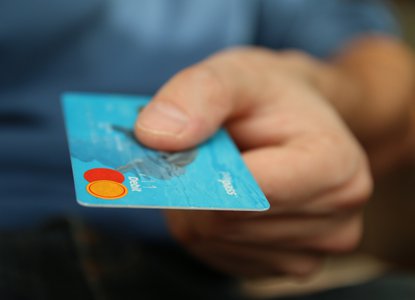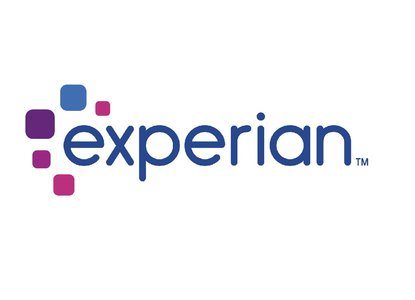Tips for talking to teenagers about how to use a credit card responsibly
When I was 18, I got my first credit card, and it had a £1,000 limit. I felt like a millionaire! Teenage Chris was already making a mental list of all the ways I could spend this seemingly ‘free’ money. First item on the agenda for Money-bags Grimes was a lads’ holiday of course.
Now as a fully-fledged adult and father to a teenage son, I realise my naivety but also that my misconception around money, credit and financial terms wasn’t uncommon then, and certainly isn’t uncommon now. That’s why, once again, I’ve teamed up with the National Literacy Trust and Experian on their Words That Count campaign to explore the importance of financial literacy and why we should not be afraid to have open conversations about money with our teenagers.
I know that there are lessons I wish I’d learned as a teenager before I flexed my newly acquired credit card and splashed its ‘free grand’ on a lads’ holiday. My son is now reaching an age where he will have access to overdrafts and credit, so it’s important that he understands the responsibility that comes with that.
Life lesson number one: Credit is not free money
At 18, I learned the hard way that I would still have to pay for my sunburn in Spain and that actually the credit card was a way to essentially ‘pre-order’ my holiday. I would always have to pay back the money to cover all the costs. The moment I realised that I owed the bank the money (with interest) still haunts me now. My son Frankie and I laughed about it when we chatted together, but I’m hoping that sharing my mistakes will also teach him something about the realities of using a credit card.
Don’t forget the interest
I want to make sure Frankie understands the importance of using credit wisely. No teenager wants to have that hideous sinking feeling when you realise that not only do you need to pay back the credit you spent, but that there is also interest on your payments. How to use a credit card and understanding the different interest rates and ‘credit card pitfalls’, can feel overwhelming. I tell Frankie that it is best to…
… pay off your credit card bill in full each month
… that way he won’t have to worry about incurring daily interest which will add more and more money to what he owes. If you need support understanding credit or explaining how to use credit card responsibly to your teenager, Experian have some top tips as well as ways to make sure you avoid paying interest.
Protect and build your credit score
Ultimately, I want Frankie to understand that how he uses credit will affect his credit score, which is essentially his financial report card. His credit score will affect his ability to do things like get a loan or rent a flat. I believe that your teen years are a key time to start building your score up. Experian explain on their website that “one of the most important aspects of building good credit score is consistency… you need to develop good credit habits and stick with them.” I couldn’t agree more.
It’s a marathon not a sprint
It's important as parents that we try and instil patience and consistency in our teenagers so that we can support them to build good spending habits and build financial resilience. The classic ‘buy now, think about the consequences later’ mentality is often where teenagers (and adults!) become unstuck.
That’s why I want to have a conversation with Frankie to understand what he might want to spend his money on, what he understands already about using a credit card and support him to plan ahead in order to pay off his credit card in full each month.
Don’t be afraid of credit cards
While I made some pretty big mistakes as a teenager using my first credit card, I don’t want my son Frankie to be afraid of using one. It’s important that our teenagers feel empowered to make the right choices and have the confidence to use credit to their advantage. Credit cards can be a great way for young people to learn about budgeting, planning ahead and working to build their credit rating – not just using them as a quick fix to buy whatever ‘big ticket item’ they are desperate for at the time.
Finding the words that count
It's important to talk about credit and financial literacy with our teens so that they feel empowered and equipped to make sensible choices. I’m so keen for Frankie to get off on the right foot but also, to feel he can come and chat to me before he books a lads’ holiday so he can enjoy it within his budget rather than worrying about any sticky financial repercussions!
I realise that it’s not easy to find the right words to talk about finances, so check out the National Literacy Trust’s Lingo Bingo glossary of terms as a refresher.
Understanding credit scores and credit cards
- Experian have some handy tips on their website which will help you compare credit cards and find out more about different types of credit.
- Unpack some of the key terms and concepts around credit cards and borrowing money using our glossary.
- Find more information on credit scores.




